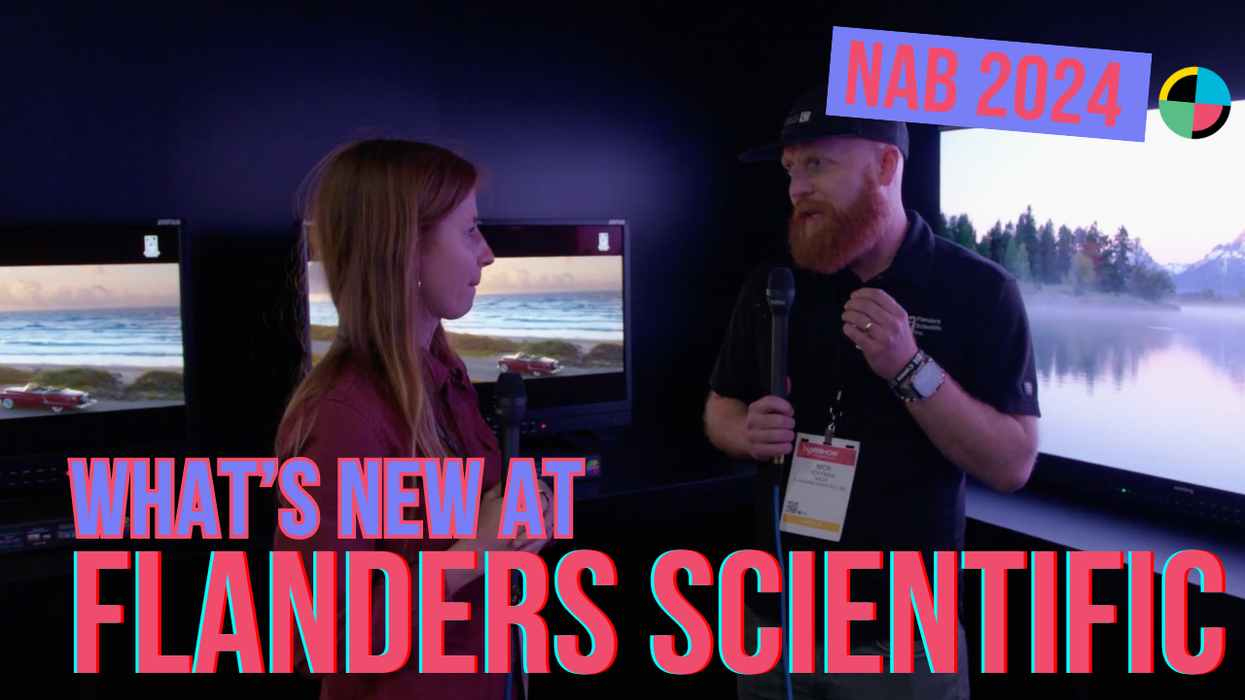5 Essential Books for Every Documentary Filmmaker's Library
It's time to dust off your reading glasses and get comfortable.

This collection of documentary books offer a well-rounded look at the world of nonfiction filmmaking, featuring titles on history, production tips, and philosophy. Learn about the history of the genre, including the origins of the first use of the word documentary. Read Werner Herzog's bizarre Minnesota Declaration, where he voices his hatred of direct cinema in classic Herzog style. Listen to Walter Murch discuss his views of film editing and what his experience was like working on Apocalypse Now with Francis Ford Coppola. Find out about the father of documentary, John Grierson, and how he helped turn the genre into what it is today. And much, much more. Let's have a closer look at these five titles.
1. A New History of Documentary Film - by Betsy A. McLane
What’s a documentary film book collection without a good history title? Betsy A. Mclane’s A New History of Documentary Film is an exciting and informative history of the genre, mainly focusing on the English-speaking documentary world of the United States, Canada, and the United Kingdom. McLane’s history brings us from the pre-documentary origins of the late 19th century all the way up to contemporary nonfiction filmmaking. Learn more about the early films of documentary pioneer Robert Flaherty, documentary filmmaking during WWII, the cinéma vérité movement of the 1960s, the arrival of video in the '80s, and the documentary traditions of the 21st century. If you’re going to buy one history book about documentary filmmaking, make it this one.

2. This Much is True: 15 Directors on Documentary Filmmaking - by James Quinn
This Much is True is a wonderfully insightful collection of essays from some of the greatest documentary directors of our time. Each chapter features a well-known documentarian discussing a particular aspect of the filmmaking process. Contributors include Nick Broomfield, Kevin Macdonald, James Marsh and Albert Maysles. Topics run the gamut, including access, emotion, interviews, thinking in pictures, character-led filmmaking, and editing. This book provides a unique look at the world of documentary and deserves space on your shelf.
3. Ferocious Reality: Documentary according to Werner Herzog - by Eric Ames
A documentary filmmaker’s library isn’t complete without a book on Werner Herzog. An enigmatic character with roughly 30 documentaries under his belt, Herzog has been making films for more than five decades. Ferocious Reality explores this collection of work, with chapters touching on Herzog’s films and how they relate to his methods and philosophies. It's a fascinating read, delving into Herzog’s thoughts and musings on the genre, including his dislike of the American direct cinema movement. The book also includes his Minnesota Declaration, where he stated that “cinéma vérité confounds fact and truth, and thus plows only stones. And yet, facts sometimes have a strange and bizarre power that makes their inherent truth seem unbelievable… fact creates norms, and truth illumination.”
4. In the Blink of an Eye: A Perspective on Film Editing - by Walter Murch
In this selection, renowned film editor (and documentary filmmaker) Walter Murch discusses his perspectives, methods, and techniques for film editing. Providing anecdotes from his extensive experience working in Hollywood, he discusses the variety of roles an editor can play in a film production. He talks in-depth about the relationship between a director and an editor, as well as his philosophy on why and how editing works. Murch’s credits include Apocalypse Now, The Conversation, The Godfather: Part III, The English Patient, The Talented Mr. Ripley, and a handful of other classic films. His essay on editing is a must have for all filmmakers, not just documentarians.
5. John Grierson: Life, Contributions - by Jack C Ellis PhD
Without Scotsman John Grierson, documentary filmmaking wouldn’t be what it is today. Grierson is often referred to as the father of the genre, mainly due to the fact that he was the first to coin the term documentary when discussing Robert Flaherty’s film Moana. He was the first filmmaker to use public and private institutional sponsorship—not the box office—to pay for his films. He also employed nontraditional distribution techniques, going outside the movie theaters to reach audiences in schools and factories, union halls, and church basements. Essentially, Grierson created documentary film and established an audience for it. If you’re a true hardcore documentary buff, you’ll also pick up a copy of the rare Grierson on Documentary.
Did we miss something on our list? Let us know in the comments!

 No Film School's coverage of
No Film School's coverage of 









